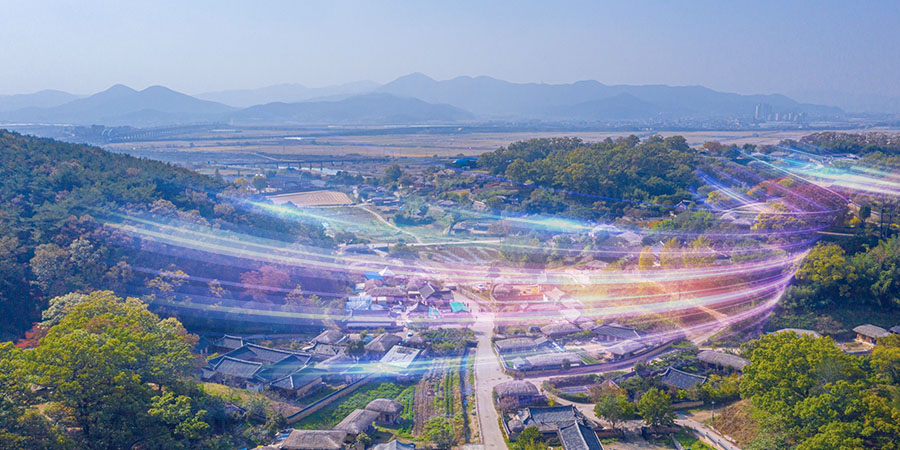The lockdowns during the height of the COVID-19 pandemic have changed the way people work, live, communicate and run businesses, making more people across the globe rely more heavily on the internet and prompting a growing demand for more operating efficiency.
Because of the resultant increasing data usage, the digital transformation of countries and industries in the Asia-Pacific region has also accelerated.
In Nepal, online traffic has also spiked during the last two years. According to official data, in 2018, total internet penetration was 56% of the population, with those consuming fixed broadband accounting for 12%.
The most recent figures suggest that internet penetration in the country has now reached 90% of the population, and fixed broadband internet users make up 25%.
Amid the high demand for more reliable connectivity, Sudeep Acharya, CEO of Nepal’s DishHome, says such a need for connectivity will continue to increase, even more so after the pandemic. “During the pandemic, it was more like it was required immediately. We have not started our business yet; we just prepared during the pandemic, so we are a little bit late, but not late enough. I think if we were able to start during that time, we would have [an] even higher number of customers right now. Even after the pandemic, the connectivity business, the need for connectivity, is there; we always see that, but with only 30% penetration, there [is] still a lot that still needs to be taken on board.”
DishHome, a media company in Nepal, initially offered TV services through traditional cables. In 2020, the company started to transform its business to include home broadband and IP TV services with its DishHome Fibernet. Today, it is one of the fastest-growing broadband providers nationwide.
DishHome has also pioneered the use of advanced WiFi technology, WiFi 6. DishHome has teamed up with Huawei to help deliver ISP solutions, and now, the company is providing a next-generation WiFi system to the local market that boasts a potential 9.6 Gbps peak speed across multiple bands.
“In 2018, we decided to go into broadband business, and that’s when we met Huawei, and they encouraged us to go into this business. For us, this is a big transformation from satellite distribution to broadband. It is completely different. Satellite distribution is also kind of technology-based, but it was completely different. We went into fiber. That’s when our partnership grew. We were looking for a partnership, and then they came along, and the reason why I’m very happy to have joined hands with Huawei is because this was new for us, and they guided us. They understood what we’re trying to do, and they guided us in this business,” Acharya explains .
But with a heightened need for reliable and steady connectivity, the country would need more advanced technological solutions to support this. Such increasing nationwide use of digital services has prompted DishHome to invest in data centers with commitment and planning to maximize this opportunity.
During the recent HUAWEI CONNECT 2022 in Bangkok, Acharya announced that DishHome has just set up a data center in Nepal, in another partnership with Huawei. “We’re planning on multiple ways. We have already started broadband, and now we’re going to data center, cloud. So first, our focus was the easy market: converting our existing television customer into broadband customers. Now we’re gearing into the enterprise solution, like cloud, which is really new for Nepal. Enterprise was there, but we’re looking more into managed services, different partners. Cloud service is also fairly new.”
Having already leveraged Huawei’s technological solutions, DishHome is now moving forward to provide the Nepal market, mainly businesses, with both managed services and cloud services using the new data center.
Acharya said that they are optimistic about Nepal’s digital transformation.
“I see a very big future; no question about it. That’s why we ventured into this. And the strength we see is the partnership with Huawei…So business-wise, in Nepal, this transformation hasn’t happened. And I think we will be leading this transformation where the SMEs and business will rely on our solutions.”
To learn more about Internet Service, please click here.







